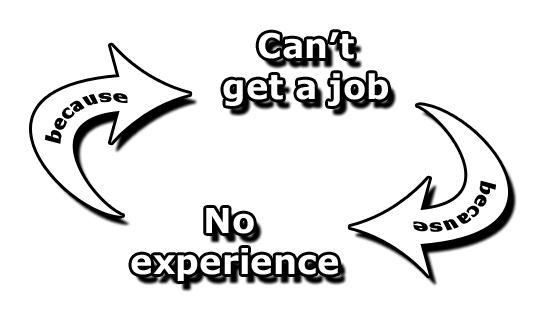Got that video from the Stanford Business School Insights page, and notably this post. Here’s essentially what a couple of researchers did/found:
Along with University of North Carolina Kenan-Flagler Business School’s Camelia Kuhnen (who earned her PhD at Stanford GSB), Oyer examined how MBAs at a top business school applied for and received offers for summer internships and then full-time jobs. Their findings support the assumption that companies want to minimize risk when it comes to hiring decisions. For example, the found that a candidate with industry experience is 1.66 times more likely to land an internship than one without. For full-time job offers, the odds of securing an offer jump to 2.38 times more likely for a candidate with industry experience.
This has a lot of implications. Let’s go through a couple of them, shall we?
- Experience shouldn’t really matter: Most academic research indicates it means little to nada in choosing leaders, and when we hire mostly on experience, we hire in a way that’s completely out of touch with the modern world. There are very nuanced jobs, yes, and for those jobs, it makes sense to hire for experience. For a general office or communications/marketing/social/business analyst type job? No. You should hire for fit. Anyone can learn anything in the modern world in about a week if they really want to. You can pretty much learn to build a house from scratch on YouTube. You can’t learn a cubicle job? I think you can.
- Education and experience are presented in totally opposite ways: You spend a ton of money on your education, and go into deep debt on it, right? Education tells you “learning and curiosity is the way!” Then industry comes along and says, “Fuck that, we only want people who have done this exact shit before.” That’s enough to make you want to swan-dive into a river from the barge. It killed me all the time in winter 2014.
- When you’re much more likely to hire from people who have already worked in that industry, you lose outside perspective: People work in an industry long enough, and they get all sorts of internal jargon and slang around different topics. Then, if they have a role that vaguely faces a consumer, they end up spouting that drivel back to the consumer, and the consumer is like, “Huh? What?” I work in the travel industry right now. Had never before. I’ve been at this job about seven months. I definitely am guilty of this. Phrased another way, “stop spending time with people like you.”
- You can slice and dice the information in the top link as much as you want, but companies are still more likely to hire someone with industry experience vs. someone without it: I worked at McKesson summer 2013. Fortune 12 company, you know? I had never worked in health care before. (As you can see, I like to bounce around, which has made my professional existence a challenge here and there.) I can’t even tell you how many times that summer I got told I “wasn’t a health care guy.” Does that mean I can’t think about an issue, simply because I haven’t worked in it before? Like, the years I spent at ESPN — which is probably a more revered brand than McKesson by many — those mean nothing because ESPN doesn’t make vaginal clamps? Please. A job is a job. Many of them are the same. The industry and vertical mostly changes the terminology. Get over yourself. Anyone with drive and passion can learn a new job in a few weeks. The hardest part is probably the relationships and politics. The other stuff is just learning systems and slang.
Here’s what the main dude from Stanford said about his survey and work in a nutshell:
The other thing I would remind people is to think carefully before you jump into business school about whether switching industries is as realistic as you’d hoped. Have some backup plans, or be willing to take other steps to get from point A to point B before you invest two years of your life and hundreds of thousands of dollars.
Any thoughts on hiring from inside-the-industry? Leave ’em.

Maybe people who are quick to dismiss people with disabilities should realize this. Let me break to them that we don’t have all the privileges that they’ve had.